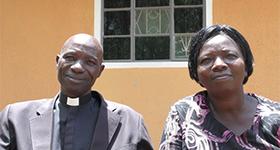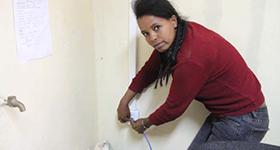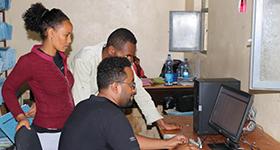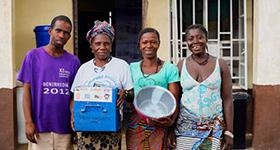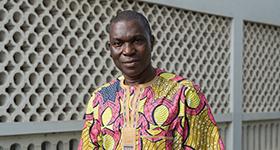Background
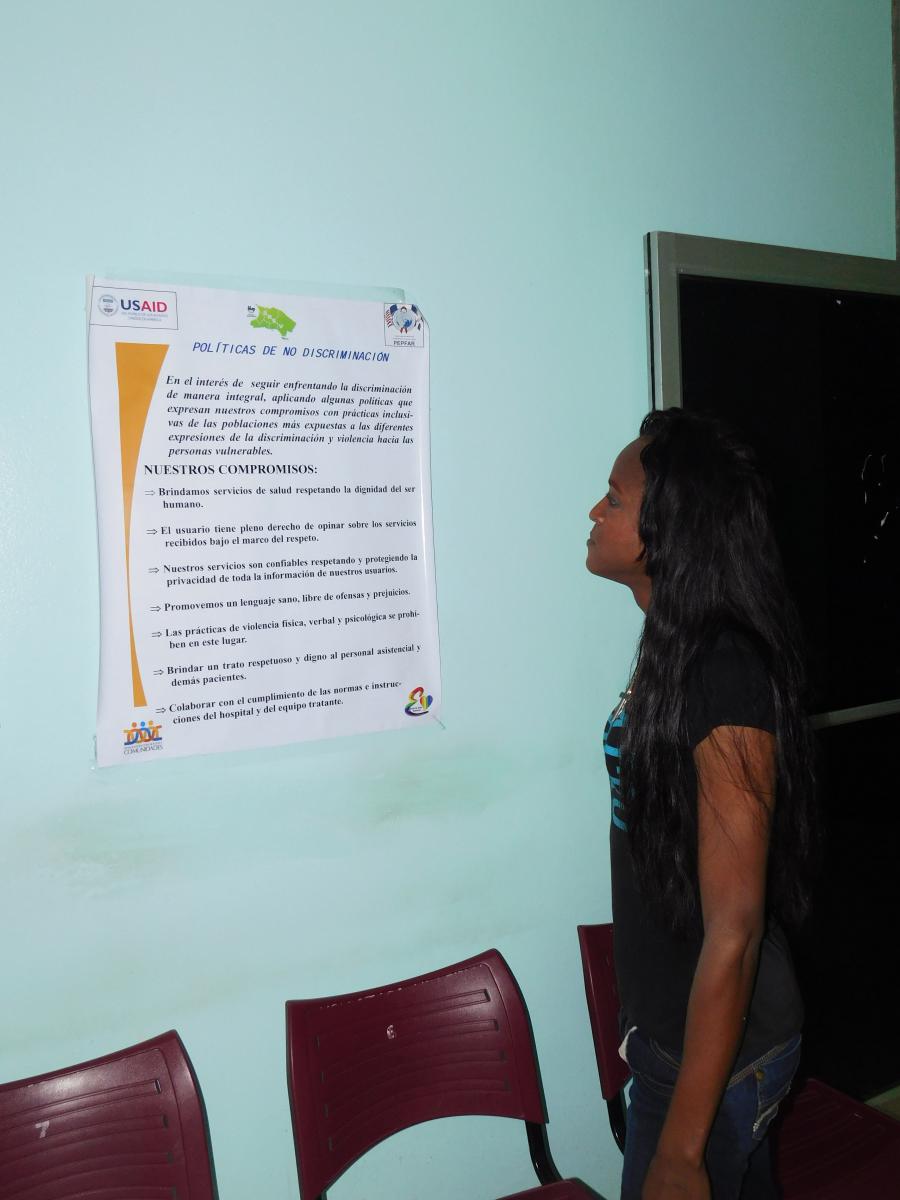
Ruby reading the anti-stigma and discrimination policies at a public hospital.
Ruby Mercenario is a 32-year-old transgender woman who receives care at the Francisco Gonzalvo public hospital in the La Romana province of the Dominican Republic. She praises the benefits of receiving services at a place free of stigma and discrimination.
“Doctors refer to me by my female name, and there’s respect for gay and transgender people. The doctors at this hospital are very knowledgeable about the health needs of gay and transgender people, the bullying has stopped, and the doorman defends us if he sees we are being mistreated.”
Unfortunately, this was not always the case. Ruby recalls that “it used to be terrible for transgender people to try to access services at the health centers. As soon as you arrived at the hospital people would start teasing you. The doorman and the motorcycle drivers would bully the transgender girls who came for medical care. The doctors wouldn’t even see you and they would send you from one place to another. There was a lot of discrimination.”
Stigma and discrimination continue to be among the most misunderstood aspects of the HIV epidemic. People who are HIV-positive, or who believe they are, frequently suffer rejection, abuse, and exclusion from the health system, especially if they happen to be men who have sex with men, transgender people, or sex workers. This is a significant barrier to prevention and treatment, which compounds the effects of the epidemic.
Intervention
In 2016, the Advancing Partners & Communities (APC) project—funded by the United States Agency for International Development within the framework of the U.S. President’s Emergency Plan for AIDS Relief— implemented a series of interventions to reduce stigma and discrimination against key populations (men who have sex with men, transgender people, and sex workers) and people living with HIV in 17 public and private sector health centers.
APC completed the following activities:
- Strengthened institutional capacity of the health centers to implement effective programs to address stigma and discrimination.
- Sensitized and trained health personnel on different issues related to stigma and discrimination.
- Facilitated collaboration between hospital authorities and civil society organizations that work with key populations.
- Established procedures for anonymous reporting of cases of stigma and discrimination.
- Facilitated periodic meetings with hospital committees to follow up on reported cases of stigma and discrimination.
- Encouraged exchange of experiences and best practices between the health centers and representatives of key populations.
Outcomes
Since implementation of the anti-stigma and discrimination policies and procedures at these health centers, beneficiaries are able to access services in an environment where they are treated with respect and are supported.
"The hospital director helps us a lot, she is always checking to see how we are doing. In addition to the counselors, the HIV clinic staff and the laboratory and emergency care staff now treat transgender women with respect when they come to the hospital. There has been a huge change here,” says Ruby.

